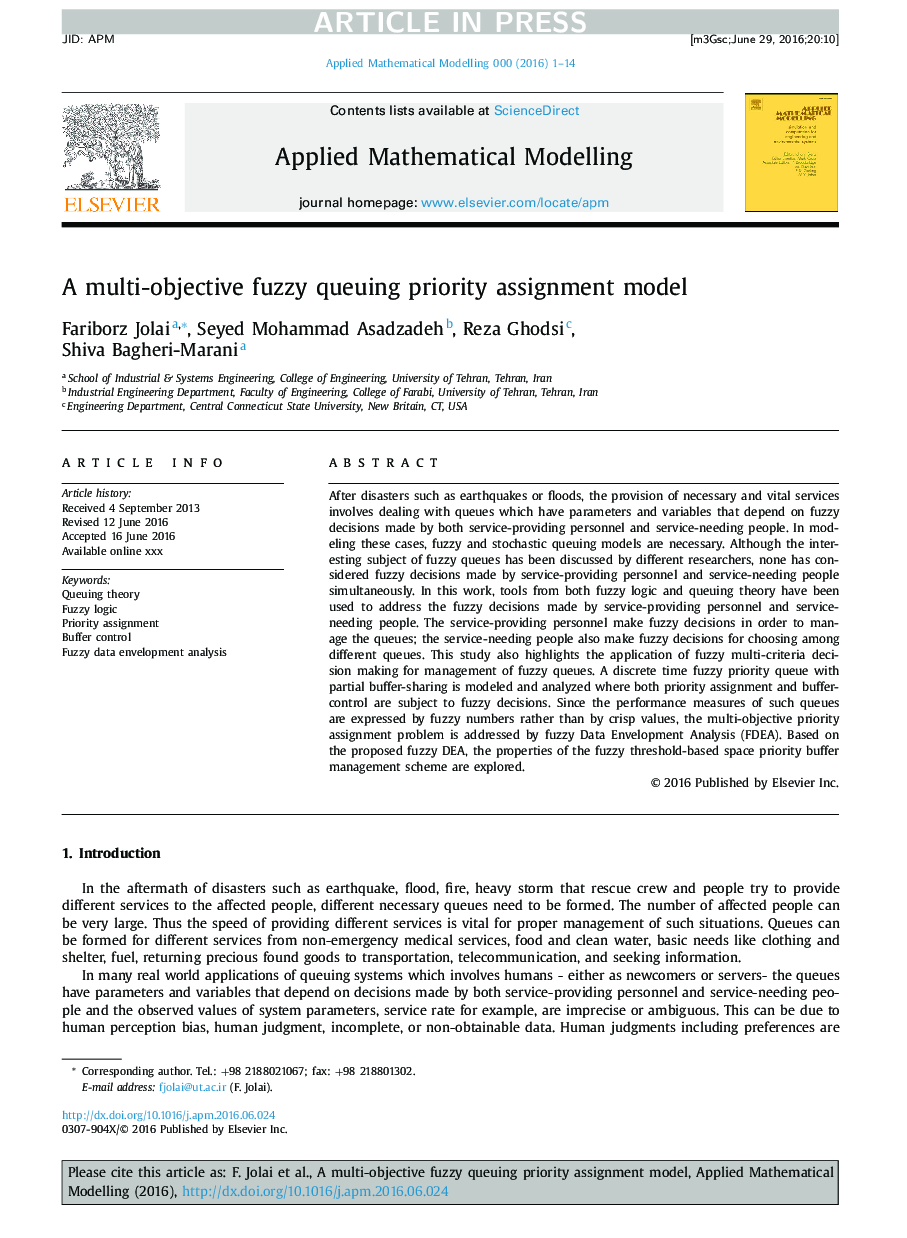| Article ID | Journal | Published Year | Pages | File Type |
|---|---|---|---|---|
| 5471485 | Applied Mathematical Modelling | 2016 | 14 Pages |
Abstract
After disasters such as earthquakes or floods, the provision of necessary and vital services involves dealing with queues which have parameters and variables that depend on fuzzy decisions made by both service-providing personnel and service-needing people. In modeling these cases, fuzzy and stochastic queuing models are necessary. Although the interesting subject of fuzzy queues has been discussed by different researchers, none has considered fuzzy decisions made by service-providing personnel and service-needing people simultaneously. In this work, tools from both fuzzy logic and queuing theory have been used to address the fuzzy decisions made by service-providing personnel and service-needing people. The service-providing personnel make fuzzy decisions in order to manage the queues; the service-needing people also make fuzzy decisions for choosing among different queues. This study also highlights the application of fuzzy multi-criteria decision making for management of fuzzy queues. A discrete time fuzzy priority queue with partial buffer-sharing is modeled and analyzed where both priority assignment and buffer-control are subject to fuzzy decisions. Since the performance measures of such queues are expressed by fuzzy numbers rather than by crisp values, the multi-objective priority assignment problem is addressed by fuzzy Data Envelopment Analysis (FDEA). Based on the proposed fuzzy DEA, the properties of the fuzzy threshold-based space priority buffer management scheme are explored.
Related Topics
Physical Sciences and Engineering
Engineering
Computational Mechanics
Authors
Fariborz Jolai, Seyed Mohammad Asadzadeh, Reza Ghodsi, Shiva Bagheri-Marani,
